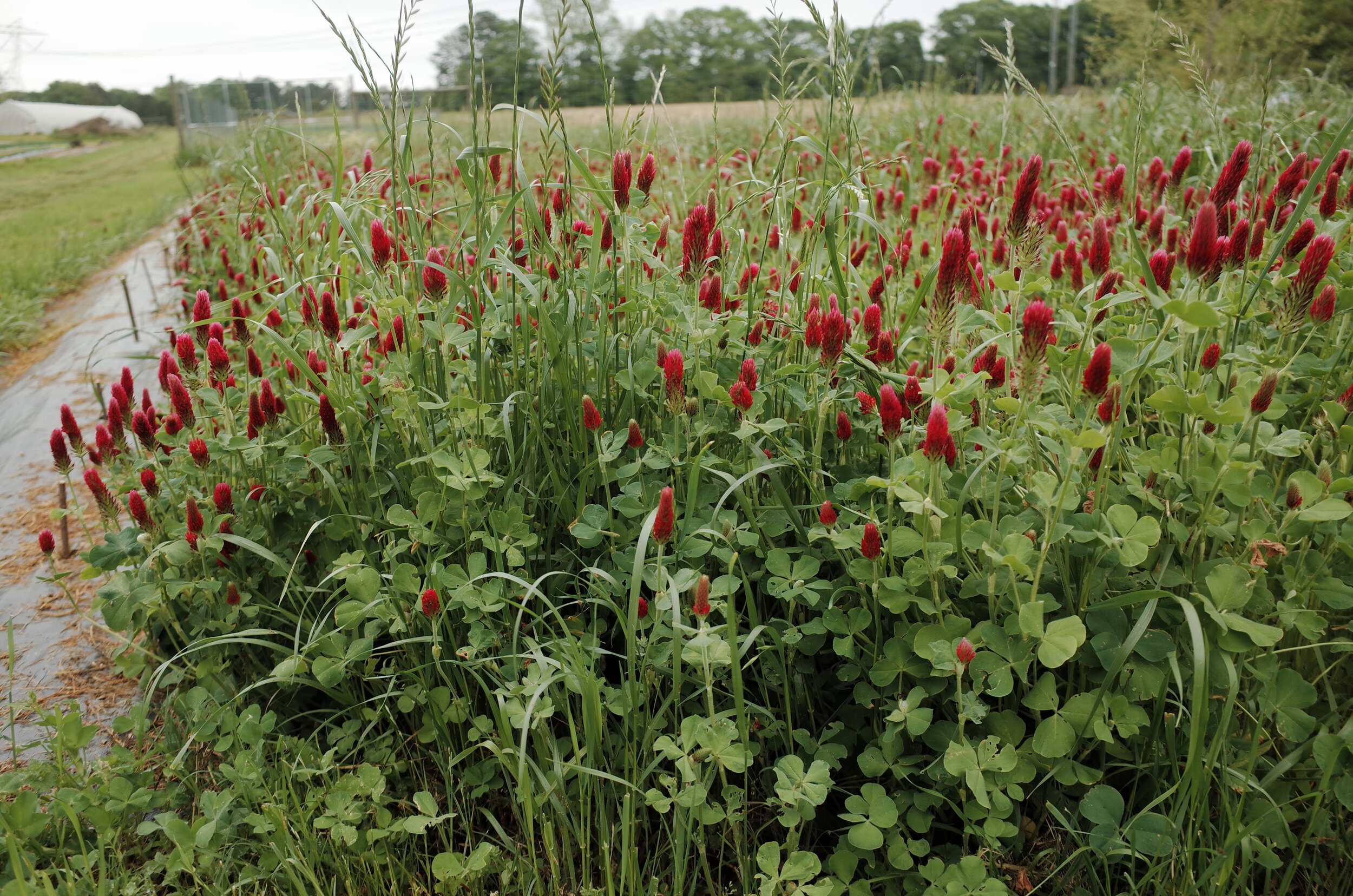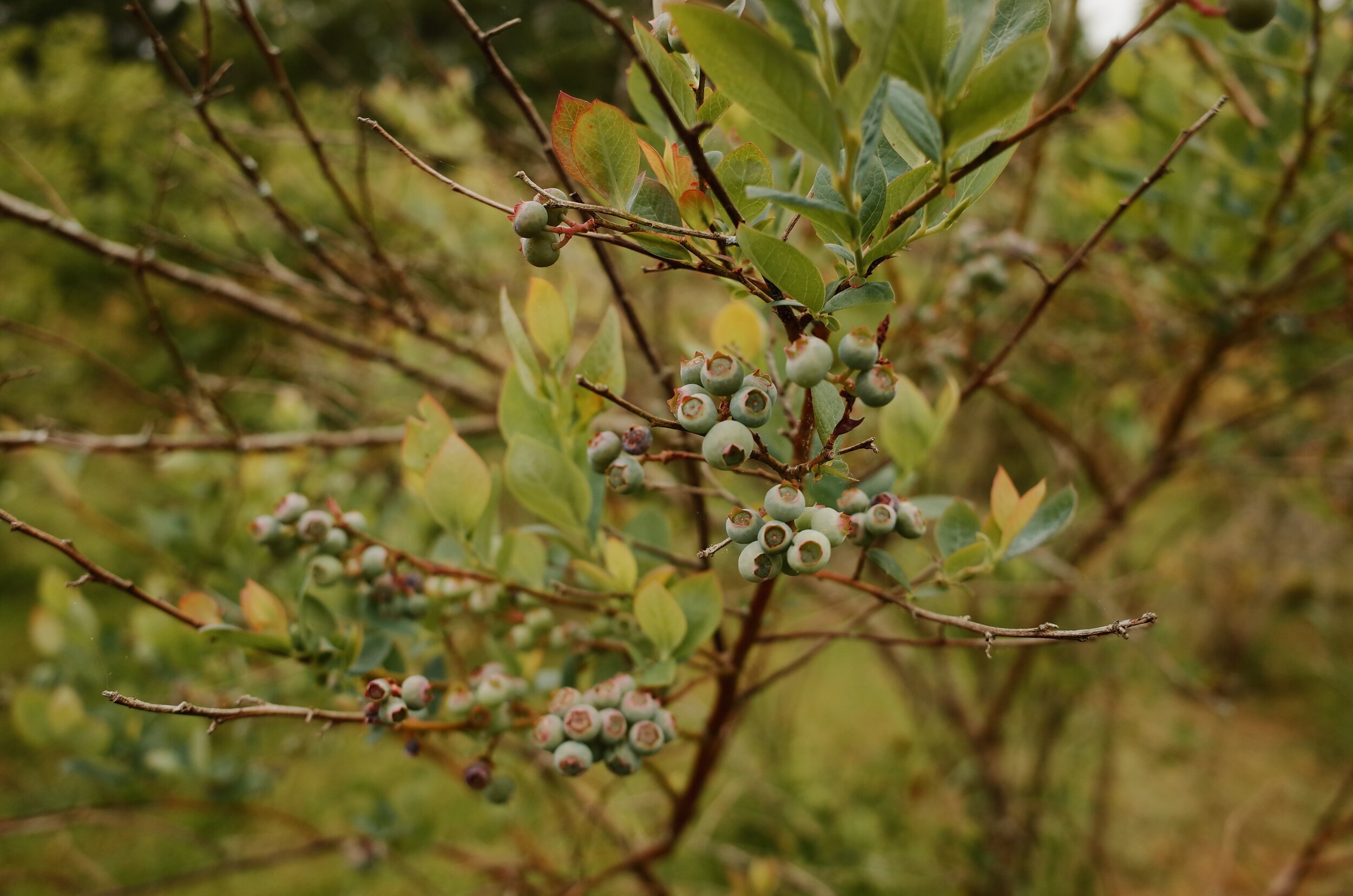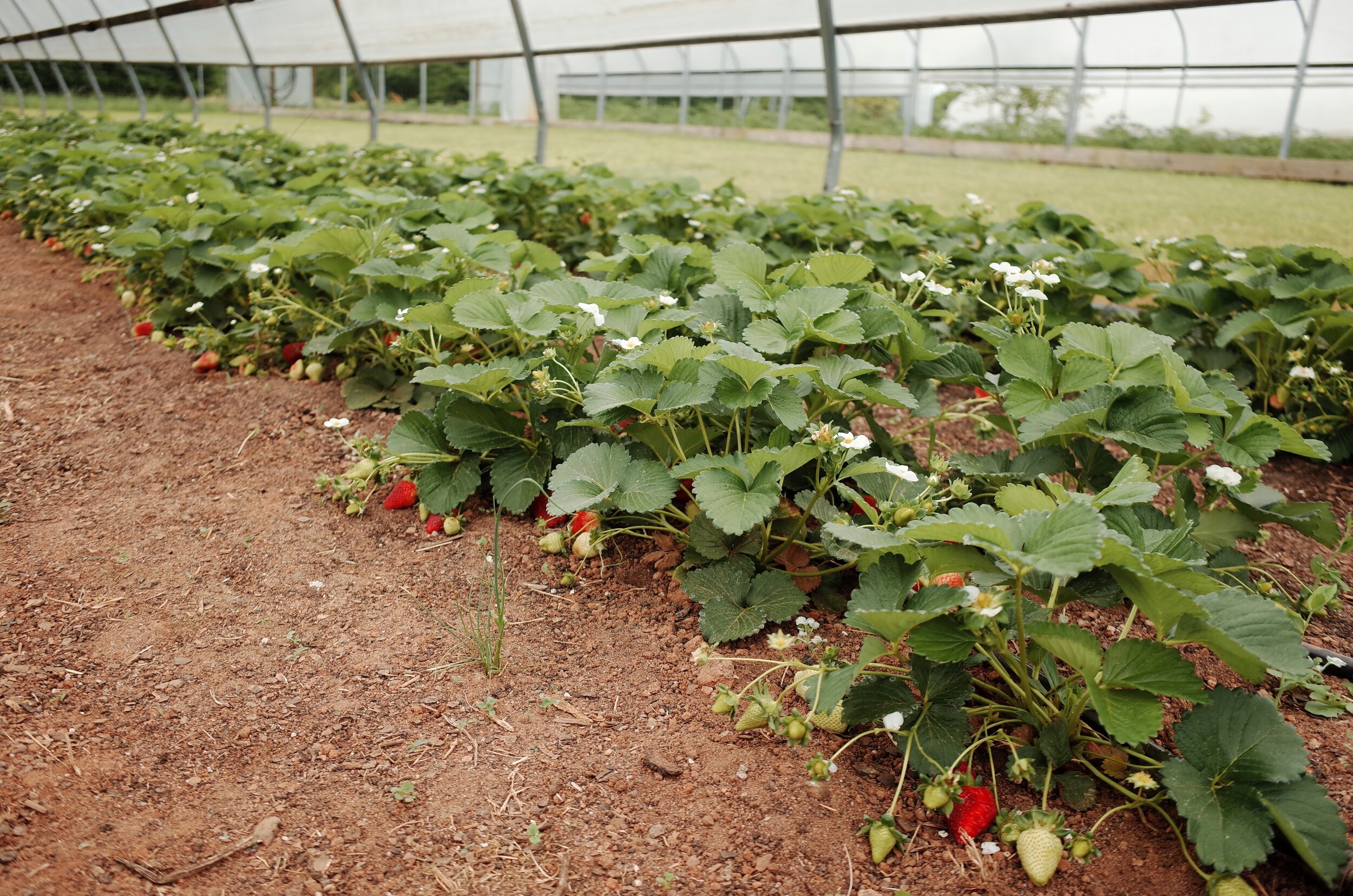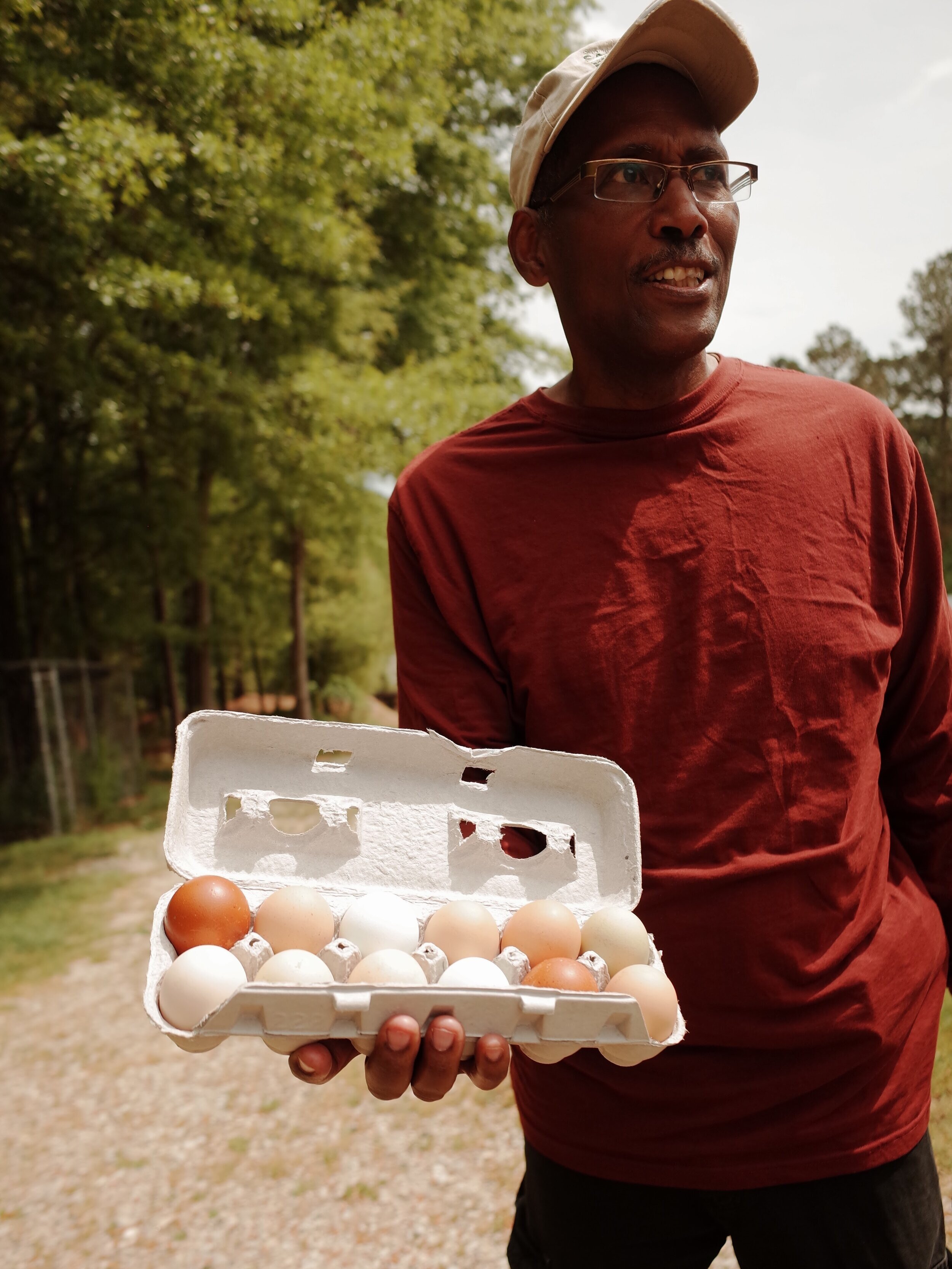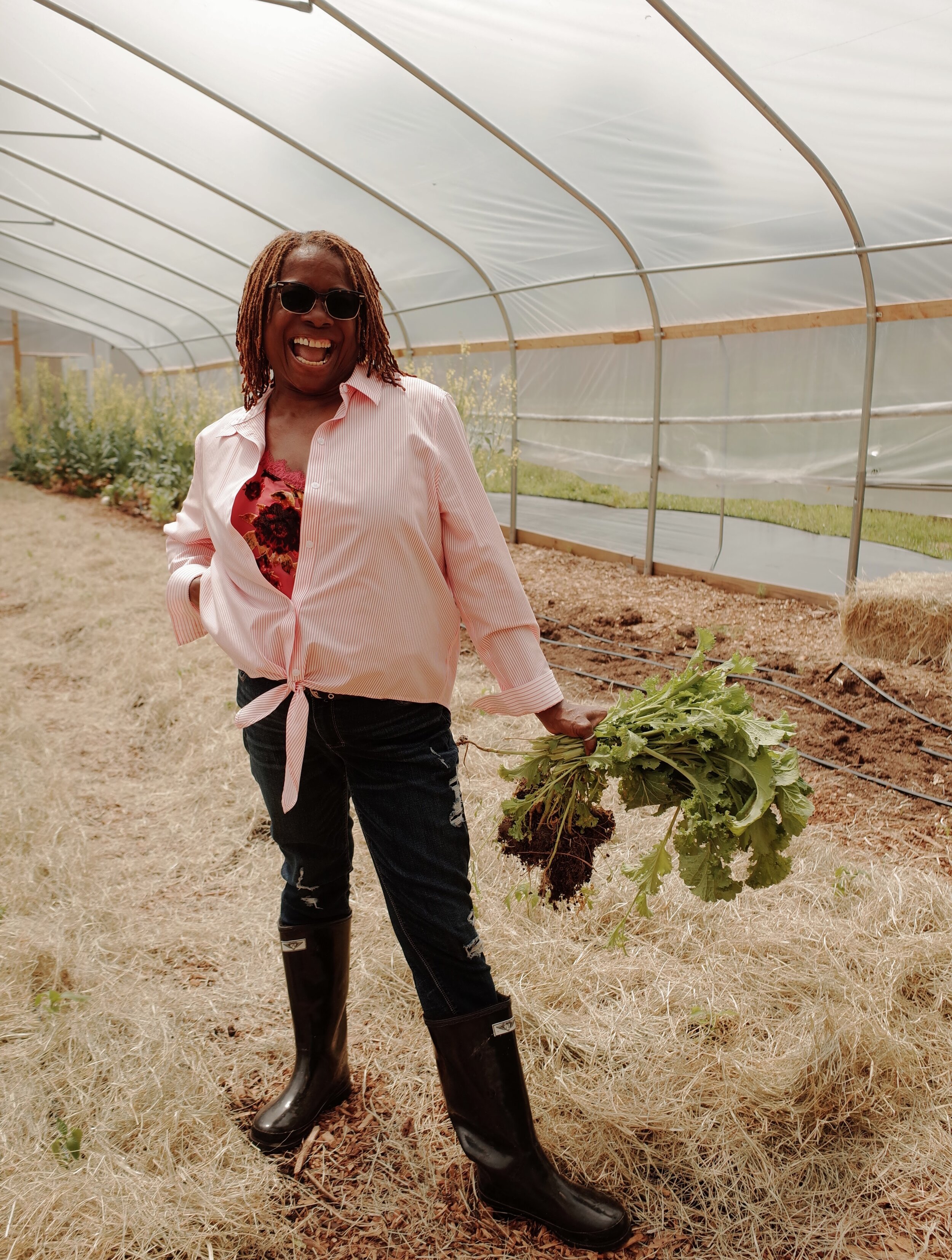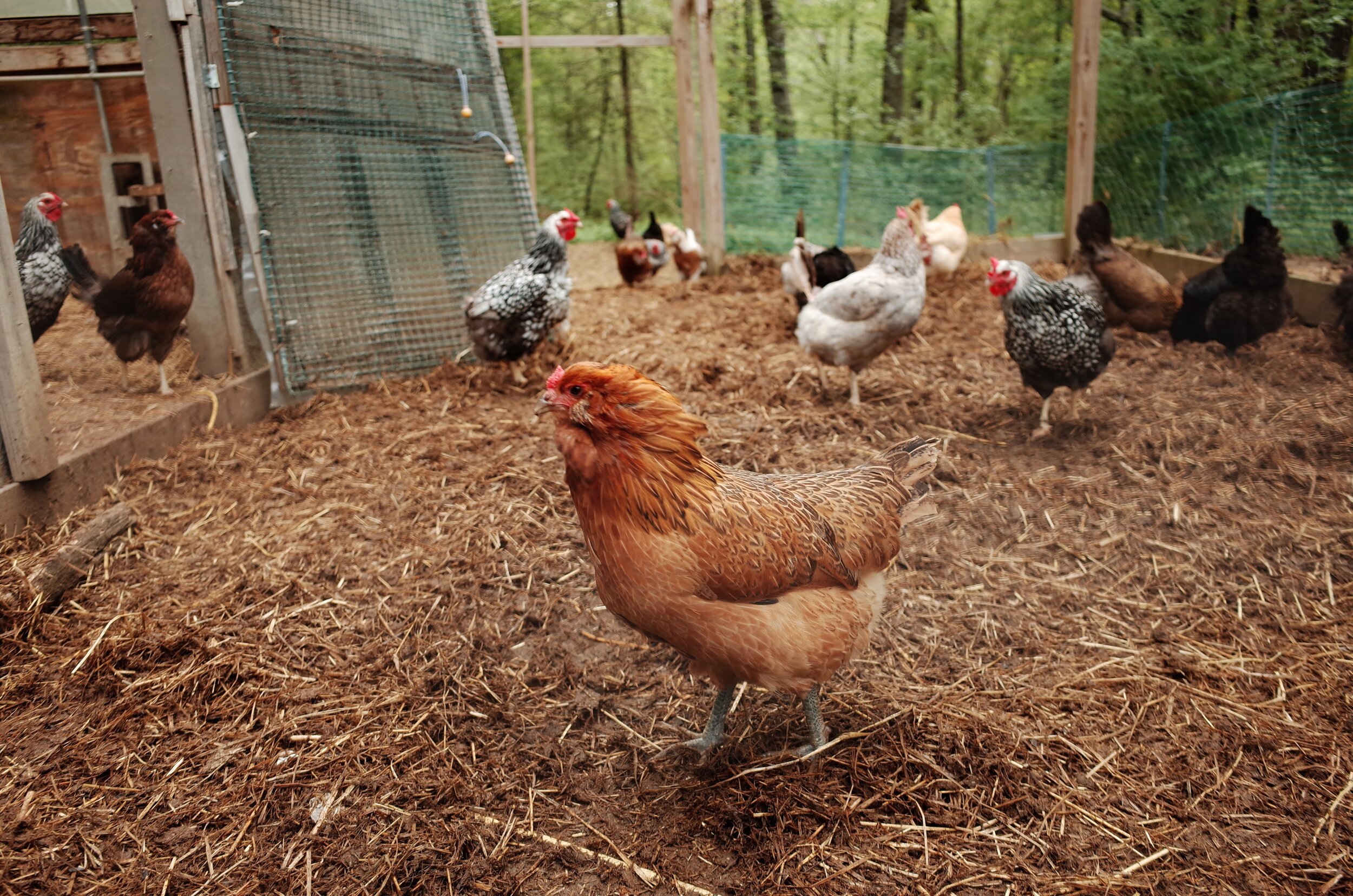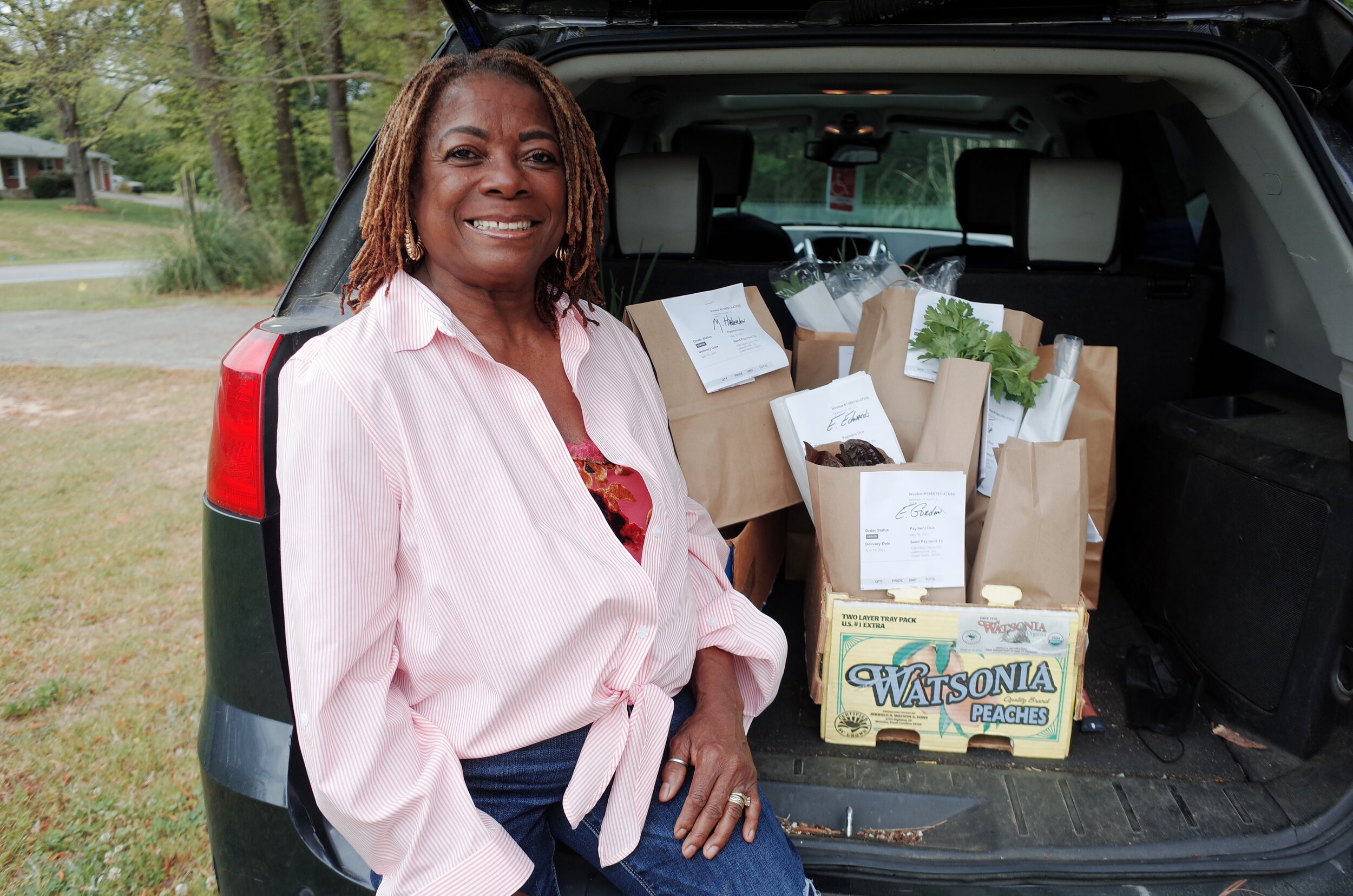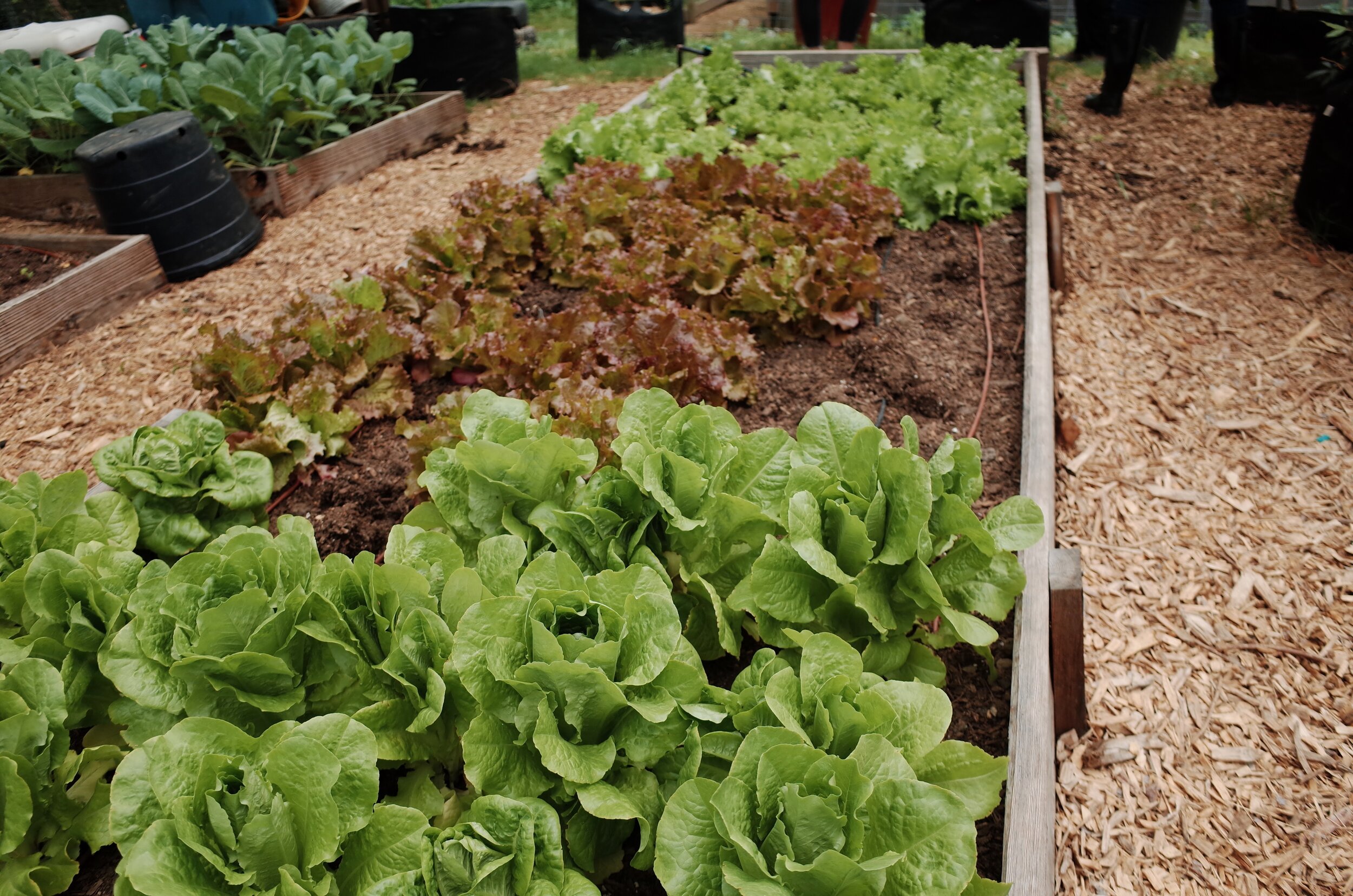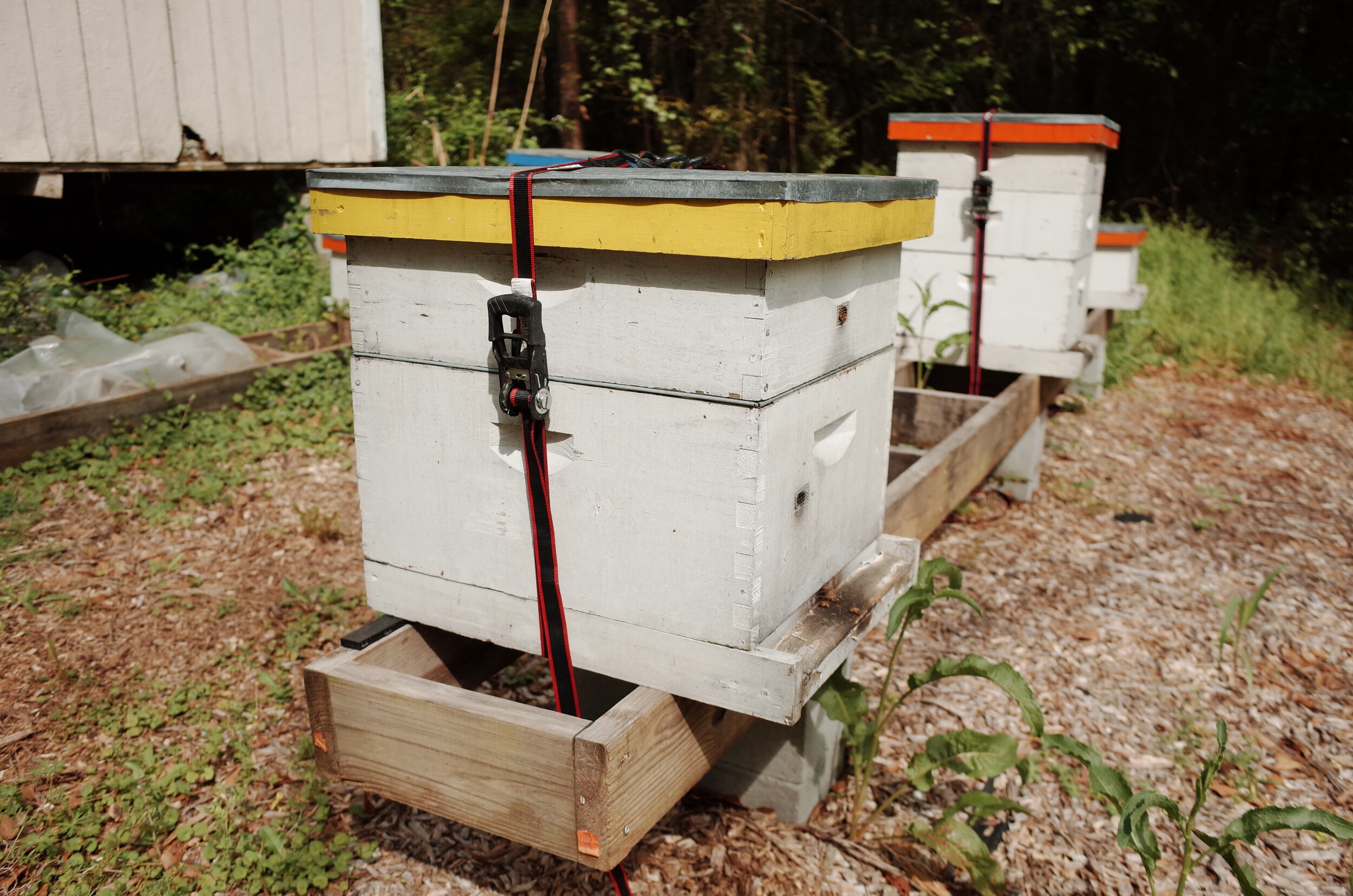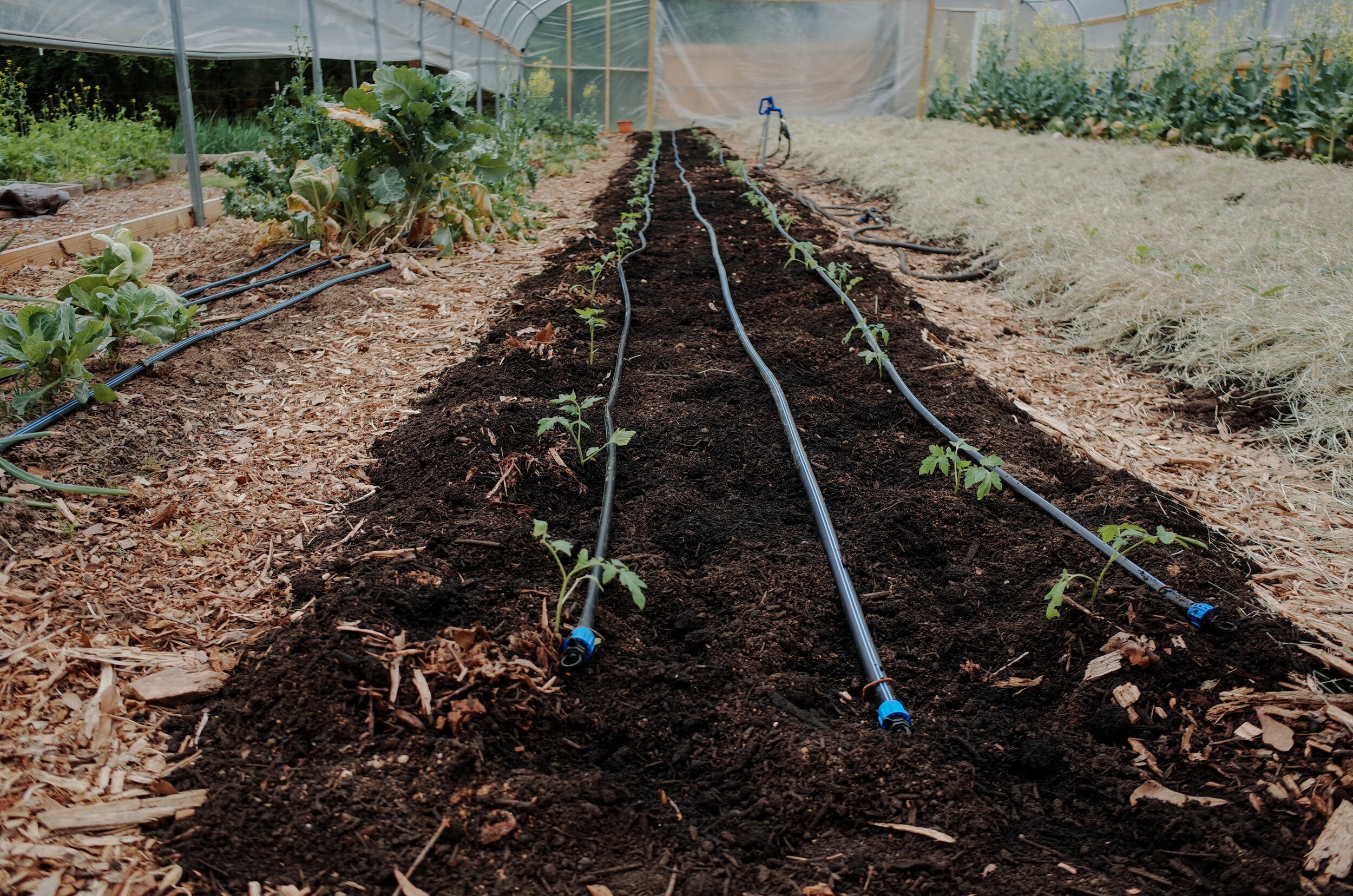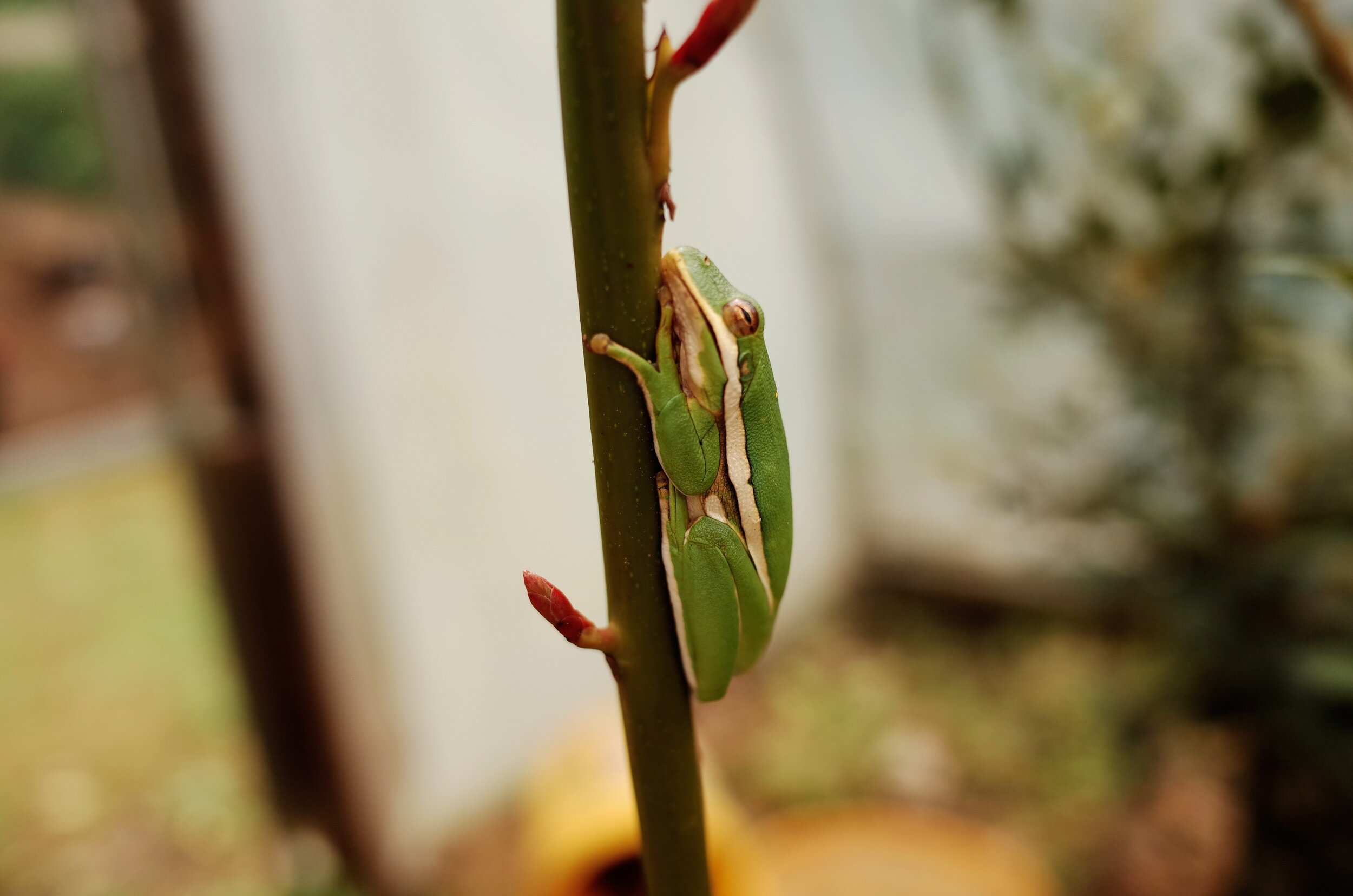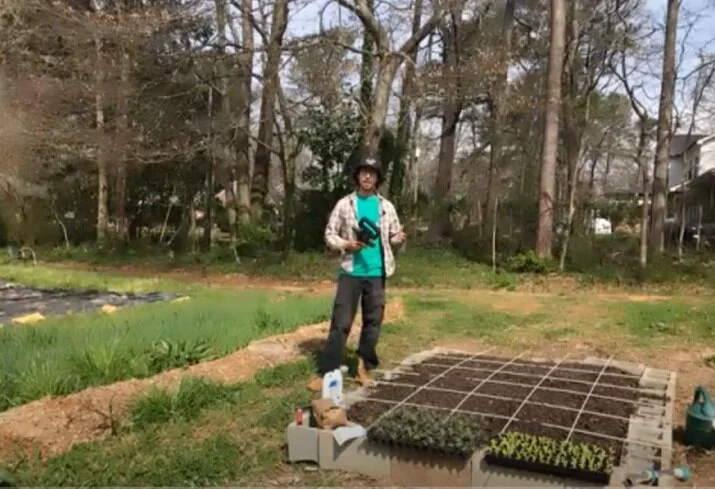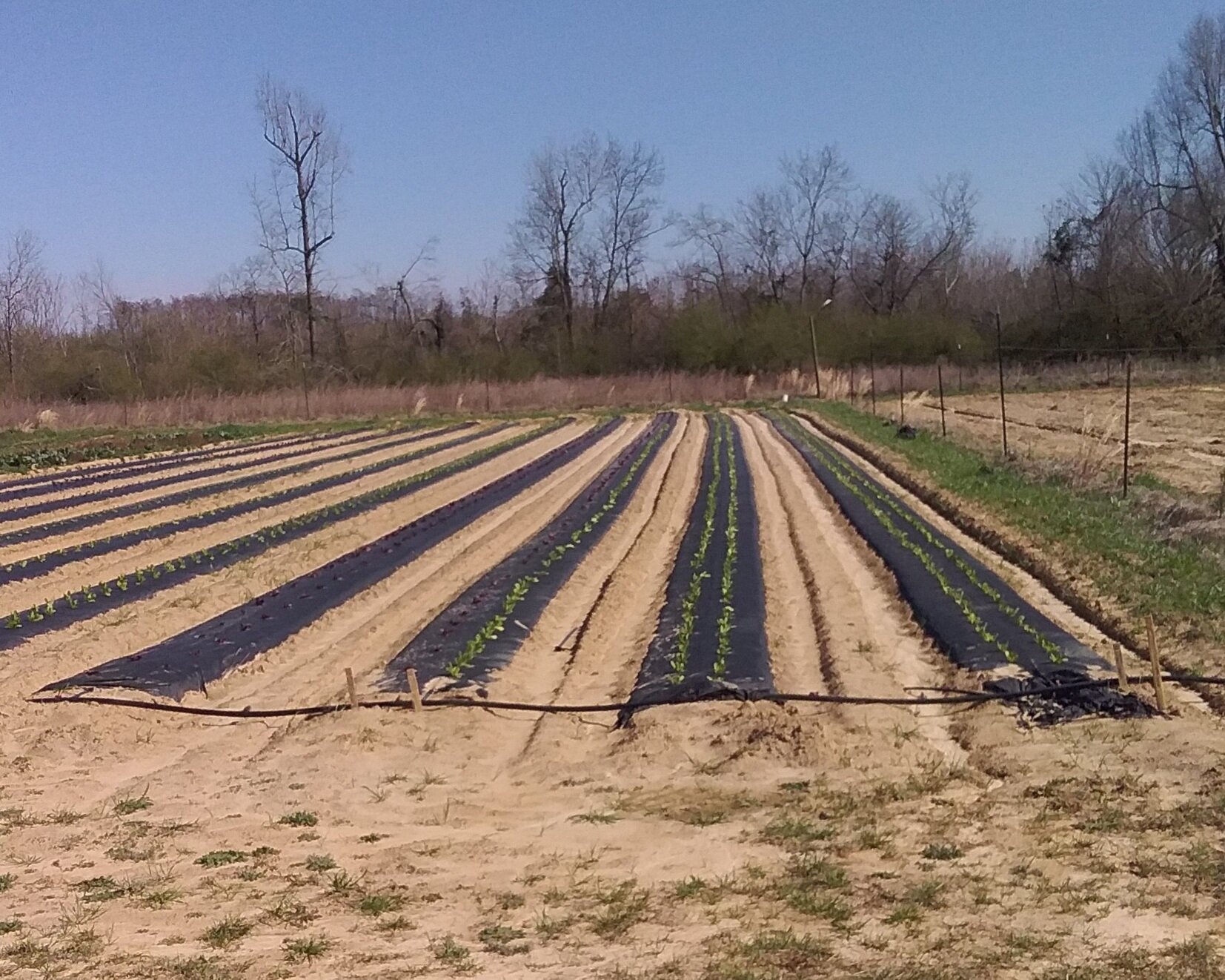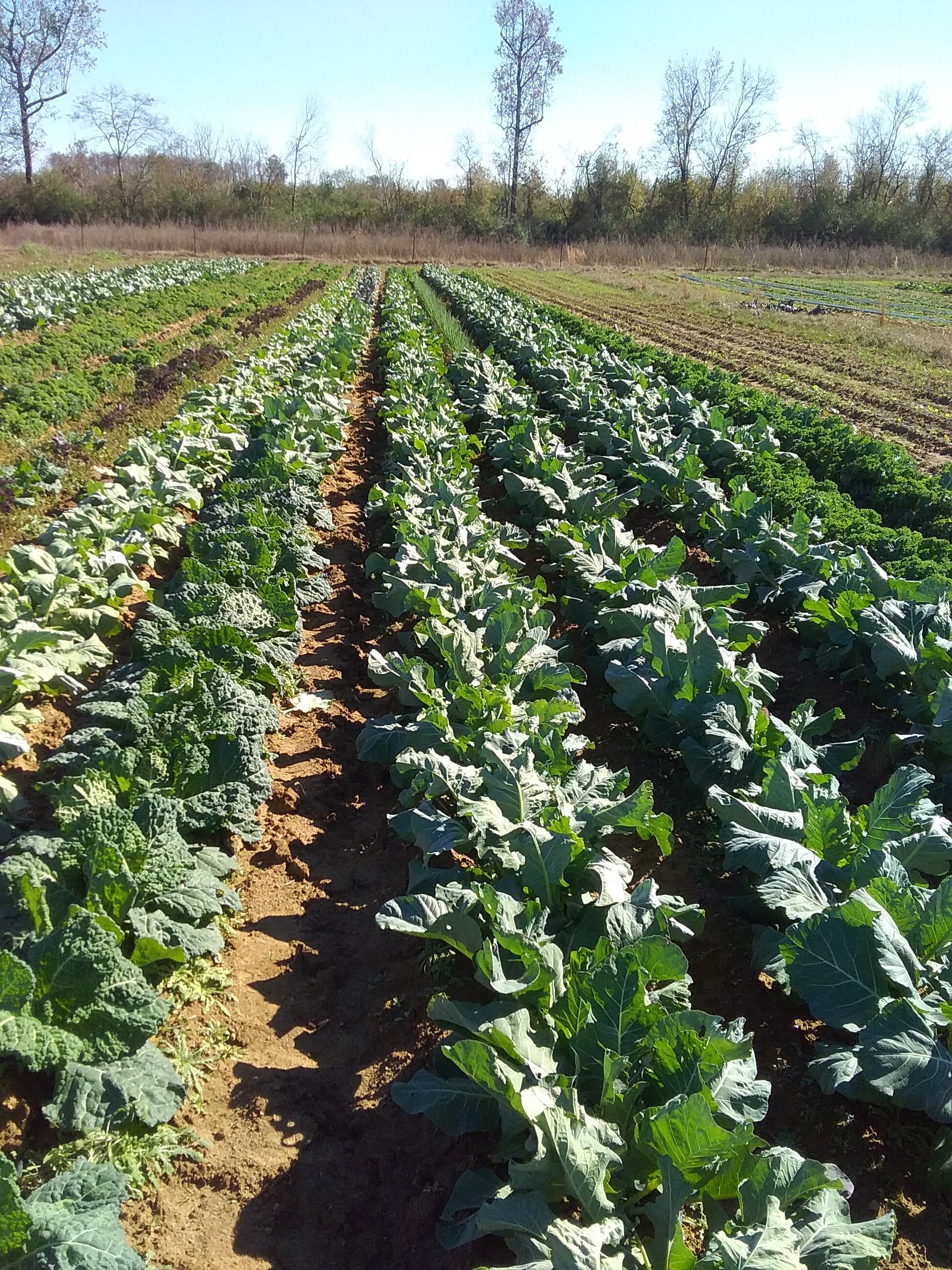By Mary Elizabeth Kidd
Photos by Kayla Williams
In 1997, the Land Steward Award was created by Georgia Organics to honor an individual or individuals who have contributed significantly to the organic agriculture movement in Georgia. The Land Steward Award recognizes the farmer with significant commitments to the tenets of organic agriculture, including soil fertility, biodiversity, and more.
This year's Land Steward Award winners are
Chris and Jenny Jackson of Jenny Jack Farm in Pine Mountain!
Celebrate Chris & Jenny on Thursday, May 27. Tix: georgiaorganics.org/awards.
Chris and Jenny embody the meaning of this award through their dedication to sustainable scaling, a cared-for team, community connection, and, of course, fostering a better environment through soil health and organic growing practices.
Listen to the Jacksons on Georgia Organics' podcast the Atlanta Foodcast!
What do you hope your lasting impact will be?
For Land Steward Award winners Chris and Jenny Jackson, they thoughtfully respond that they aim to be "a type of nourishment to this land and the local community that surrounds, supports, and encourages us."
Meeting the couple at Jenny Jack Farm in Pine Mountain, it’s evident that they are well on their way to enacting this legacy. On their farm, with two young children in tow, it’s hard to miss the fulfillment and groundedness they exhibit; a state of being for which so many strive…but which only comes with hard work, committment, and love of the land.
Chris and Jenny are Georgia natives and University in Georgia alums who met, fittingly, outside Athens' iconic 40 Watt Club. Shortly after graduation, marriage, and entry jobs in education and gardening at Callaway Gardens, their interest in full-time farming blossomed.
Crucial factors fueled the desire to farm full-time: "…it gave us the opportunity to have a little more dominion over our daily lives, the gift to work alongside each other and the great outdoors, and the work itself provided our bodies and minds with the right amount of exercise."
To grow this passion, the couple set off to work on three farms in Hawaii via WWOOF: World Wide Opportunities on Organic Farms. Upon their return, they apprenticed at Glover Family Farm in Douglasville with mentors they cite as integral to their path: "Skip and Cookie offered us experience, connections, and a launching pad into our own farm business."
Throughout their journey, the Jacksons have prioritized growing food naturally. Both for their personal eating preferences and the knowledge that the market existed (and has continued to thrive) for food grown organically.
Today, Chris and Jenny Jackson are in their 15th year of intensive farming with a team of full- and part-time farm staff and their own very young farmers: daughter, Tulsi, and son, Amos.
Jenny Jack Farm lies on about 3.5 acres in Pine Mountain, where they grow Certified Naturally Grown fruits, vegetables, herbs, flowers, and microgreens, as well as spring transplants and medicinal tinctures. The property, some 150 acres in total, is the home where Jenny grew up. "Her parents have generously allowed us to integrate our farm enterprise into their lives, giving us access to 2 beautiful buildings along with use of the land," Chris adds.
Even during the pandemic, their business has thrived thanks to an almost 200-member CSA and an on-farm store. While the on-farm order pick-ups have shifted from so-called "bucolic" gatherings to a COVID-safe drive-through, their engagement with the community has never waned.
Our conversation with Jenny and Chris about their path in sustainable farming follows:
What is your WHY in agriculture, generally? What motivates you to continue doing what you do...?
Farming is not just one thing; the tasks and the momentum are ever-changing. Farming asks us to do things we are not necessarily comfortable doing, and we have to be pretty good at each for the whole enterprise to keep moving forward. The farm is never finished, it's this imperfect living organism always shifting, and we farmers come alongside and reverently abide in the evolution. I think that's why farming is so attractive because we never, ever feel like we have mastered our work.
Besides the fulfillment we find in doing this kind of work, the need for fresh, naturally grown food is only growing, and we want to help provide for our community of supporters.
What are a few of the hurdles you've overcome in your career?
We've been fortunate that we have not experienced any major weather damage, our bodies have held up so far, and even in years when we experience some crop loss, other crops pull us through. However, adding two babies to the already demanding role as farm owners and managers has been challenging, to say the least. We are thankful that we waited until after our farm was established before adding additional humans to the mix. We have found that even with the help of family and babysitters, we are operating at the equivalent of one very full-time farmer as opposed to two very full-time farmers. This is not a hurdle we have overcome, but one we navigate daily; it's one part insanity and one part the most beautiful thing in the world.
How has mentorship factored into your work, and who are some folks you have mentored who have continued to farm?
We operated our farm for 12 years using our apprenticeship program as the main labor model. We would employ two apprentices each year but for a variety of reasons have recently shifted to all hourly work. We are still good friends with most of the apprentices who came through here; several of them visit us each year. I would say our perspective of so many issues in this world has been shaped and colored by these folks who have spent most of a year toiling in our soil. Some of these folks are still farming, and we all continue to learn from one another. Liz and Brian have a big vegetable operation in Mentone, AL, Rahul owns Snapfinger Farm near Atlanta, Katherine Kennedy manages Concrete Jungle, Miranda Cox apprenticed with us eight years ago and has been working with us on and off since, Micah and Katherine have a small vegetable and medicinal herb farm in Blairsville, Shana Frankel has just started Ma Rabu Farm 30 minutes down the road from us in Franklin, Ann Sharpe is running a small farm in Cincinnati, and Kelley Walton is working for a farm up near Louisville.
Did anyone mentor or inspire you in farming?
Oh sure! The Glovers, of course, were a big inspiration. Their farm's beauty, hospitality, and the size of tomatoes that their land could produce were memorable. We were inspired by Alex and Betsy Hitt of Peregrine Farm in North Carolina (they gave us a free tour of their farm on a Sunday afternoon!), Nickolas at Crystal Organics, Celia at Woodland Gardens, and Daniel Parsons at Emory, to name a few. Wendell Berry's writing gave us hope, and the Georgia Organics Conference gave us so much energy and new ideas, especially early on in our careers.
What are three factors that have gotten you this far in your farming career?
Jenny and I do a pretty good job of, as our friend Brandon says, "staying in our lane." We both have specific jobs on this farm, and while we might discuss them with one another, we do not encroach. Chris built, maintains, and repairs the greenhouse but couldn't tell you the varieties of lettuces we have started. Jenny creates the crop plan, knows proper plant spacing and how to prune tomatoes, but does not dabble in irrigation repair. Second,
We are pretty focused people with a high tolerance for physical labor, so early on in our career, we worked our way into a moderately successful farm. That strategy has since changed, and we are now doing well at spending less time on farm chores. Third, I think we make decisions quickly, and we pivot to enact those decisions quickly. While this might be a flaw in some instances, we don't spend hours and hours discussing and analyzing every little detail and filtering through all the possibilities. There's no time for that, especially with two kiddos now, so we go with the gut. Oh, and I know this is more than 3, but hiring employees took our farm to the next level, and we find great joy in being around our staff; they keep us laughing and educated on the outside world. I would also be remiss not to mention the fact that we did not have to buy the land we are farming; we lived in a friend's old house a few miles down the road the first six years of the farm. They asked for no rent, and our neighbors sold us the house we live in now for a very low price allowing us the opportunity to move it onto our farm and remodel it. So much love and good fortune have come our way...
What personal characteristics do you think lend well to you being a farmer?
Chris is a nine on the Enneagram scale. He's a peacemaker and avoids conflict, which can be a flaw but also can be helpful when managing a crew. He walks fast, is very organized, pays close attention to details, and has little fear of standing on wobbly ladders.
Jenny hates to disappoint people, so she goes to great lengths for customer service. She's also patient, steadfast, and has big love and appreciation for this land we are tending.
What's next for the farm and yall?
Hopefully, at least another 15 years as farmers. We just started saving for retirement last year, so we might be in this thing by necessity for much longer. Or maybe people will start to value collards as highly as they do bitcoin, and we can gracefully shift to whittling spoons on the front porch and taking afternoon naps. More than likely, the immediate future holds much of the same, to keep running a productive, profitable farm business and to try to be good parents who have time to play.
What does winning this award mean to you?
Well, it's definitely the most prized award we have received, and perhaps it just verifies that we're scrappy enough to keep coming back year after year. Really, the power of this award rests in the long list of good farmers who have received it. We are so grateful to be growing food in a state with so many talented, creative growers, many of whom will be recipients down the road. One of Wendell Berry's solutions to the environmental crisis we have found ourselves in is to "think small," and that's what we think this award is highlighting. We carefully tend this really small piece of earth, cooperatively grow thousands of pounds of food within the bounds of nature's guide, and then distribute all the food within 40 miles of our farm. Receiving this award 15 years into our farming career is an acknowledgment of the hard, deliberate work of both the community of microbes enriching our soil and the community of eaters choosing each week to purchase food plucked from our soil. What good fortune to make a living and raise a family right in the middle of the two!
Want to help us honor Chris, Jenny, Gwendolyn, and Brennan? You can make a contribution in their name for our award honorariums.
Join us online to meet and celebrate Chris and Jenny Jackson on Thursday, May 27, at 6 p.m. FREE for Georgia Organics members. Register at georgiaorganics.org/awards.
Listen to the Jacksons on Georgia Organics' podcast the Atlanta Foodcast!
Mary Elizabeth Kidd is the Director of Communications at Georgia Organics. To learn more about Georgia Organics, visit www.georgiaorganics.org and follow us on Instagram @GeorgiaOrganics, Twitter @GeorgiaOrganics, and at www.Facebook.com/GeorgiaOrganics.









